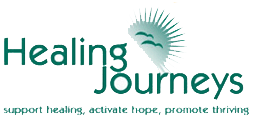by A. Ann Lovell
I remember 2001 not only because all of our lives changed on September 11, but because two months prior, my life had already taken a major shift: I was diagnosed with breast cancer. Until my mammogram and subsequent biopsy that year, I had assumed that cancer was what happened to other people. All of the words associated with the disease—lumpectomy, DCIS (ductal carcinoma in situ), radiation, chemotherapy—were not in my personal vocabulary. They were scary words even for someone who had experienced gall bladder and hysterectomy surgeries. From these previous experiences, I thought I knew how to take one day at a time. But cancer was a bigger word than I had ever encountered and I realized I would have to write my own definition.
Decisions had to be made and, based on the biopsy results, my oncologist said the next step was a lumpectomy. Since I have always been in control of my health, or so I believed, I wanted to have the breast removed immediately. Maybe both of them, hoping this would resolve the medical condition and help alleviate my anxiety. I was overly anxious to have the surgery and felt that whatever was to come next needed to happen sooner than later. Then Darlene, a very good friend who has had a double mastectomy, called when she heard about my prognosis. She and her husband both are health professionals and trusted friends. She invited me to her comfortable home so that I could ask her questions and she very graciously let me see her scars and prosthesis. Her words were not only hopeful, but she assured me that I did not have to make an immediate treatment decision. One step at a time, she said. My frantic decisions were put on hold as I began to see that hope and love, not anxiety and fear, were the platforms from which I would launch my journey. I postponed the surgery and went with my partner and friends to the Oregon Coast. The ocean has always been a place of quiet contemplation for me.
A few weeks later, on August 8, 2001, I underwent a lumpectomy. I was prepared for the worst but when the post-surgical diagnosis was DCIS (a cancer usually associated with an excellent long-term prognosis), with no lymph node involvement, I knew how very lucky I was. My oncologist suggested that I confer with a trusted colleague at Fred Hutchinson Cancer Center in Seattle before we settled on a treatment plan. I had been feeling upbeat, but my appointment, on September 12; in the aftermath of the attack on the World Trade Center, I was an emotional mess. Compared to what the world was experiencing my problem seemed insignificant, but this just magnified my distress. Everything was going wrong at the same time. In tears, I said, “My health problem feels so minor with all that has happened in the past 24 hours.” Gently, this wise doctor reached out to me. “No health problem, particularly cancer, is ever minor,” she replied. She then confirmed that the standard for my diagnosis was six weeks of radiation and a daily dose of Tamoxifin (later changed to Arimidex) for several years. And so we began.
Isn’t it amazing that when we give up control and let the universe come into our lives, miracles can happen? Curing was under way, but I still needed to address the healing. Right at this time, another friend told me about a conference she thought I should attend. My first Cancer as a Turning Point, from Surviving to Thriving conference was at the University of Washington in July 2003. Standing in an auditorium with 900 other people whose lives had been touched by cancer changed my life. In her opening remarks, Jan Adrian gave us each a gift of hope, transforming cancer from a negative mindset to a graceful rite of passage. Her words highlighted what it means to be human, and how to thrive.
The conference was my call to action. I was inspired to make important changes in my life— appreciating each new day, improving my diet and monitoring stress and chemical exposure—in order to minimize the chances of the cancer returning. Not only that, but several friends had gone with me and we were all so moved that we went home and started a cancer support group at our church. We are still meeting nine years later. In 2004, many in our support group attended the conference held again at the University of Washington, and two of us—me, and my close friend Peggy, volunteered to work with the planning team for the 2006 Seattle conference. Unfortunately, my friend passed away in 2005. But through her last months and days, I watched this dear woman live every minute to the fullest. It was a lesson in grace and such an honor to be with her.
When, prior to the 2006 conference, Jan Adrian and Lynne Singer, President of the Board, asked me to join the national board of Healing Journeys, I was thrilled and excited. And attending my first board meeting in Berkeley, California, was like walking into a room of strangers and realizing that they were all dear friends I had never met before. My soul needed the warmth and healing power of this compassionate group.
I served on the board from 2005 until 2009 and feel very blessed to have been a part of an organization completely dedicated to giving hope and information to those of us diagnosed with all types of cancer and life-altering illnesses. A more dedicated, thoughtful, compassionate and “soul rich” group of people would be hard to find.
As for me, personally, I realize how very fortunate I am with my cancer battle. It has been nine years since the DCIS diagnosis. My life changed when I paused and realized that there is more to healing than a medical diagnosis. I live in gratitude for all the miracles, love and information I have found on my journey. Healing Journeys helped me not just to survive but to thrive when faced with a life threatening illness, and to embrace the very highest levels of what it means to be human.
Bio: When Ann was diagnosed with breast cancer, a friend told her about the Cancer As a Turning Point conference at the University of Washington. She attended and was so moved, that when she returned home, an hour west of Seattle, she co-founded a cancer support group at her church, Kitsap Unitarian Universalist Fellowship. The next year the whole group returned to the conference. Ann retired from the Seattle Department of Parks and Recreation and volunteers her time on several boards and committees. She lives with her partner, Jan Williams, and Tucker, their special Bichon, in Bremerton, WA.


